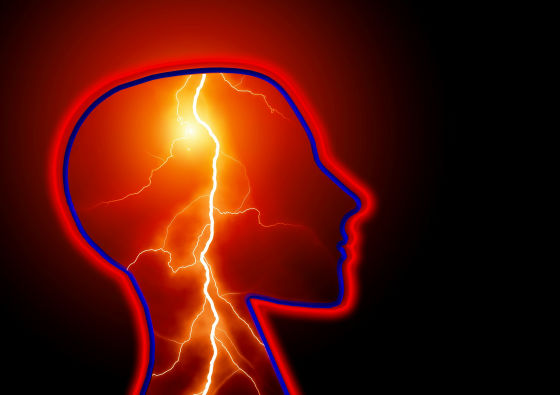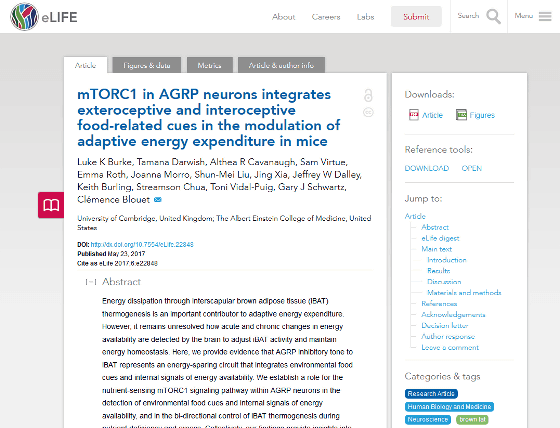Brain science will confirm the reason why it is better not to rely on "fasting" when dieting

In order to gain anxious weight gain, a diet approach that is close to "fasting" may be taken to deplete energy in the body by reducing the amount of food and to burn the fat in the body. However, from experiments using mice, circuits of reducing the amount of energy consumed in the body are provided when the amount of food eaten to the animal's body is reduced, and it is confirmed that extreme fasting is counterproductive It is.
MTORC 1 in AGRP neurons integrates exteroceptive and interoceptive food-related cues in the modulation of adaptive energy expenditure in mice | eLife
https://elifesciences.org/content/6/e22848%20
Why our brain cells may prevent us burning fat when we are dieting
https://medicalxpress.com/news/2017-05-brain-cells-fat-dieting.html
The research team of Cambridge University and Metabolism Research Lab conducted experiments using a mouse. Investigating the function of "Agouti related peptide (AgRP)", which is a type of neuron (nerve cell) in the hypothalamus of the brain and related to the appearance of appetite, when the amount of calorie taken into the body is small, The research team confirmed that there is a mechanism to reduce energy consumption and reduce weight loss.
The research team created a state that can turn on / off the function of AgRP in the mouse body by using genetic engineering technology and investigated how the action of neurons affects mice. The mouse was placed in a special container and it was said that the environment was able to accurately measure the total amount of consumed energy. Also, it seems that a method to measure energy consumption was taken even by measuring body temperature from the outside.
Studies have revealed that AgRP determines the amount of calories consumed in the body and shows a "thermostat" function that determines the amount of energy to burn. When AgRP is activated, the animal feels appetite and takes food and tries to consume energy in the body. However, when putting the situation in which food can not be found, it will lead to suppression of energy consumption in the body by making this neuron grown-up. In other words, this leads to a situation where energy is not consumed in the body and the energy stored in fat is not consumed.

Dr. Clemens Brewier, who led the research, said, "From the research it was shown that the cooperation of multiple neurons in the brain controls appetite and energy expenditure, when food is present Neurons encourage us to eat, but when there is no food, we are trying to reduce energy consumption by putting our body in a sort of "save mode". "
It is said that this circuit system that eats food when it is not used and suppresses energy consumption when there is none has been acquired in order to survive the survival competition by surviving for a long time even though the living thing is starved. Dr. Luke Burke, the principal author of the paper said, "This research outcome may be a reference for preparing coping therapy for hyperphagia and obesity. In the meantime, best for people who want to lose weight The way to deal with it is to combine several exercises and refrain caloric intake moderately. "
Papers by the research team can be referred to from the following links.
MTORC 1 in AGRP neurons integrates exteroceptive and interoceptive food-related cues in the modulation of adaptive energy expenditure in mice | eLife

Related Posts:







